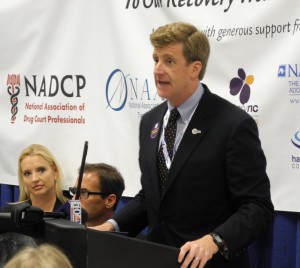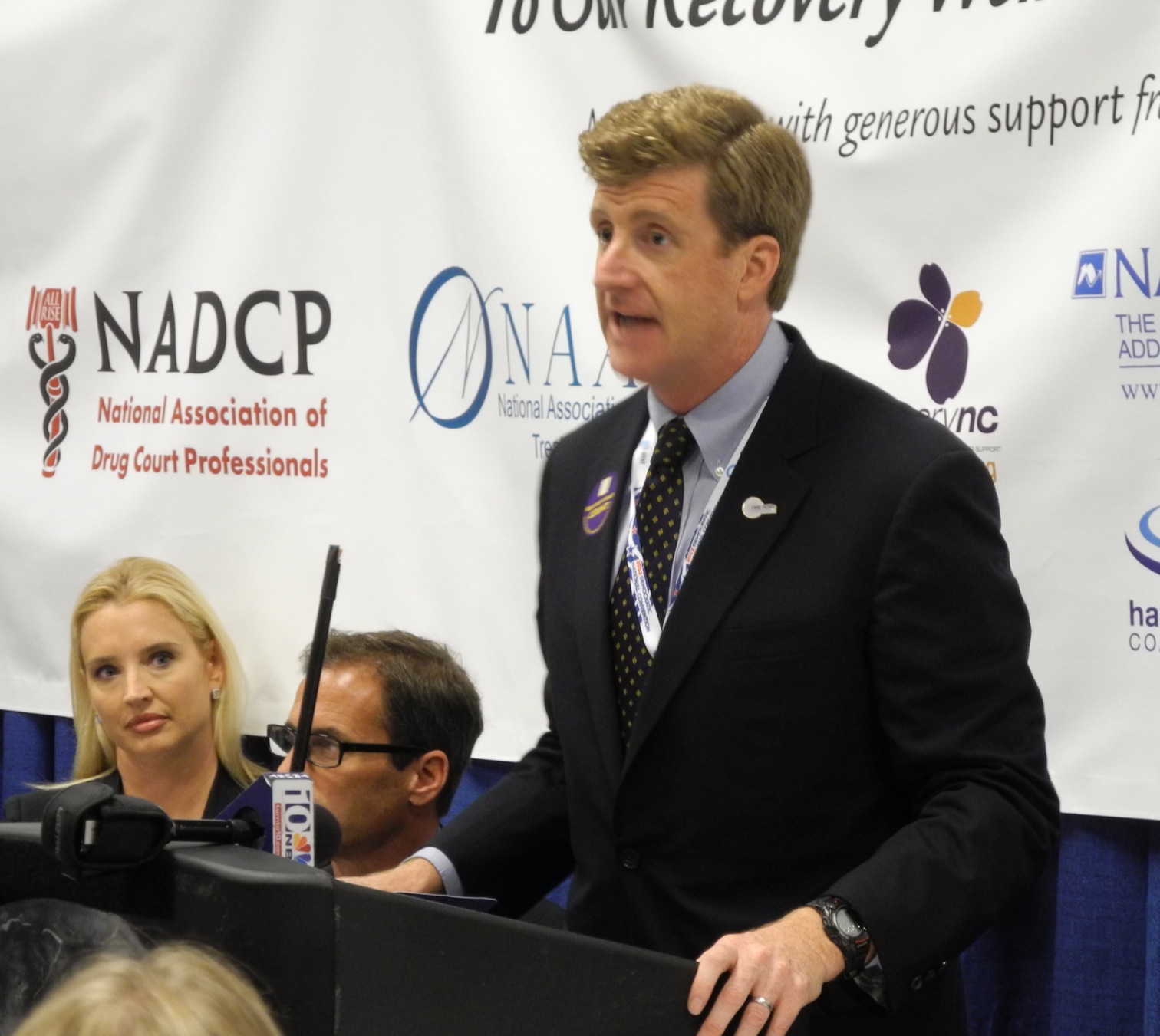
CHARLOTTE, NC — Former RI Representative Patrick Kennedy was a guest speaker at this afternoon’s Recovery Caucus meeting at the Democratic National Convention and he brought his message of full mental health parity to a standing-room-only session.
The panel was chaired by RI delegate Tom Coderre, who works for Senate President Teresa Paiva Weed. It also featured David Wellstone, son of the late Senator, and former cable network anchor Carol Dhue.
Coderre recognized the work of Kennedy in backing the Recovery Caucus, which is sponsoring recovery rooms every day in all of the DNC’s venues. “This is the most recovery-friendly convention ever,” he said, and praised the 2012 Democratic platform which “recognizes recovery as the public-health crisis that it is.”
But Coderre and the other speakers also stressed how much work remains to be done.
Although legislation ensuring parity in mental health coverage was signed into law, Kennedy argued that it was time for the department of Health and Human Services (HHS) to issue the final rules that would enable enforcement.
“We expect implementation that will not have any loopholes,” he said. “Right now, these issues affect a new population: veterans returning from Iraq and Afghanistan.” Kennedy expressed outrage that more veterans are now dying by suicide than enemy action. “Our vets are being caught behind the enemy lines of addiction and depression,” he said.
Closing potential loopholes is especially critical, Kennedy said, for those members of the National Guard and Reserve returning to their jobs after deployment.
And veterans are only part of the “besieged minority” affected by these diseases, said Wellstone, quoting his his father, who was an early advocate. “It is not just the right thing to do, it’s the fiscally responsible thing to do,” Wellstone said, given the estimated $400B yearly cost of untreated addiction and mental health issues. Without the final HHS rule, said Wellstone, “we don’t have the teeth.”
“If your father was here,” Dhue told Wellstone, “we’d already have teeth in the bill.”
She lamented the fact that unlike other diseases, addiction and mental health are improperly overlaid with moral attributes.
“It comes down to science,” she said. “I was wired to be an addict.”
Carol McDaid, a DC-based advocate, asked caucus-goers for their support in launching a petition to fight for the final regulations, and announced a web site for the effort, parityispersonal.org.

